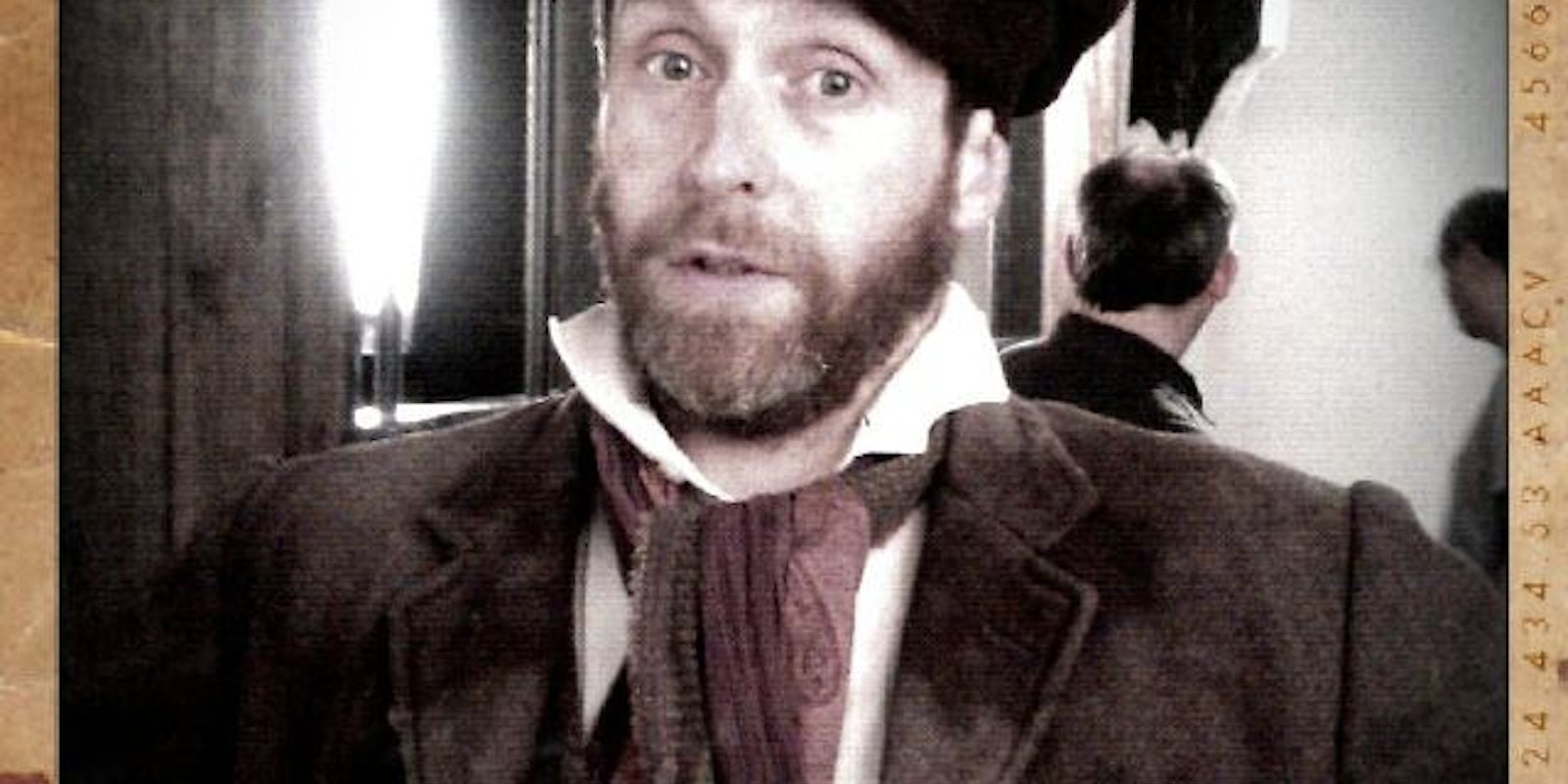Yet another Internet user has had his content improperly removed via the Digital Millennium Copyright Act. And once again, it appears to be a case of a porn company hiring an automated DMCA takedown service and falsely flagging inoffensive material.
But this time, the victim is a well known British comedian.
Dave Gorman, famous for twice biking across Britain and doing a stand-up show each place he stopped for the night, noticed in 2006 that someone had spray-painted giant, colorful letters around London. Gorman took pictures of the ones he could find and posted them to Flickr, and fans in the comments tipped him to where he could find the rest.
Eventually, he compiled a full, 26-picture alphabet, and even received the blessing of the artist, Ben Eine. His album received almost 160,000 views, hundreds of comments, and was linked to around the Internet.
However, on Feb. 17, Gorman wrote on his blog, Flickr took down the photos in response to a DMCA claim by a porn company, Wasteland, Inc, which claimed Gorman’s photos as its own. Wasteland, like many porn producers, employs a third-party company to aggressively protect its intellectual property. These companies scour the Internet, sending legal complaints to any site that hosts their clients’ copyrighted material.
That practice has its problems, though. Major sites that host user-generated content (such as Flickr and YouTube) can’t possibly investigate every DMCA claim’s validity. So they have an automated response: immediately suspend the content, give the user a notice, and let that user file a counter-claim.
Companies that issue DMCA takedowns often use automated systems to identify copyright infringement, as was apparently the case with Degban, the company that took down Gorman’s album. The problem with that is that these systems can use false positives, leading to innocent users having their material suspended without reason—and without punishment for the company that issued the takedown.
Numbers are hard to come by, but in 2009, Google estimated that 37% of DMCA notices were invalid copyright claims.
Gorman blogged that he didn’t have a problem with Flickr’s automated system. “I don’t have a beef with Flickr for deleting the image,” he wrote on his blog. “They did it because they had to,”
Flickr has since reinstated the photos. A man claiming to be the CEO of Wasteland apologized on Gorman’s blog, though he did not immediately return the Daily Dot’s request for comment.
Degban similarly didn’t respond, though the company’s website states they’re based in London.
A man claiming to be Degban CEO Taban Panahi, however, did write back to Gorman. He claimed the DMCA complaint was actually the result of Degban being hacked by someone who wanted to reduce the company’s credibility.
“truly am sorry that you were effected as such, but allow to humbly suggest that you channel a part of your anger at those holier than thou hackers who effect users like yourself by such irresponsible actions,” he wrote.
“I can’t say it’s all that convincing,” Gorman wrote of the email.
Photo from yfrog
